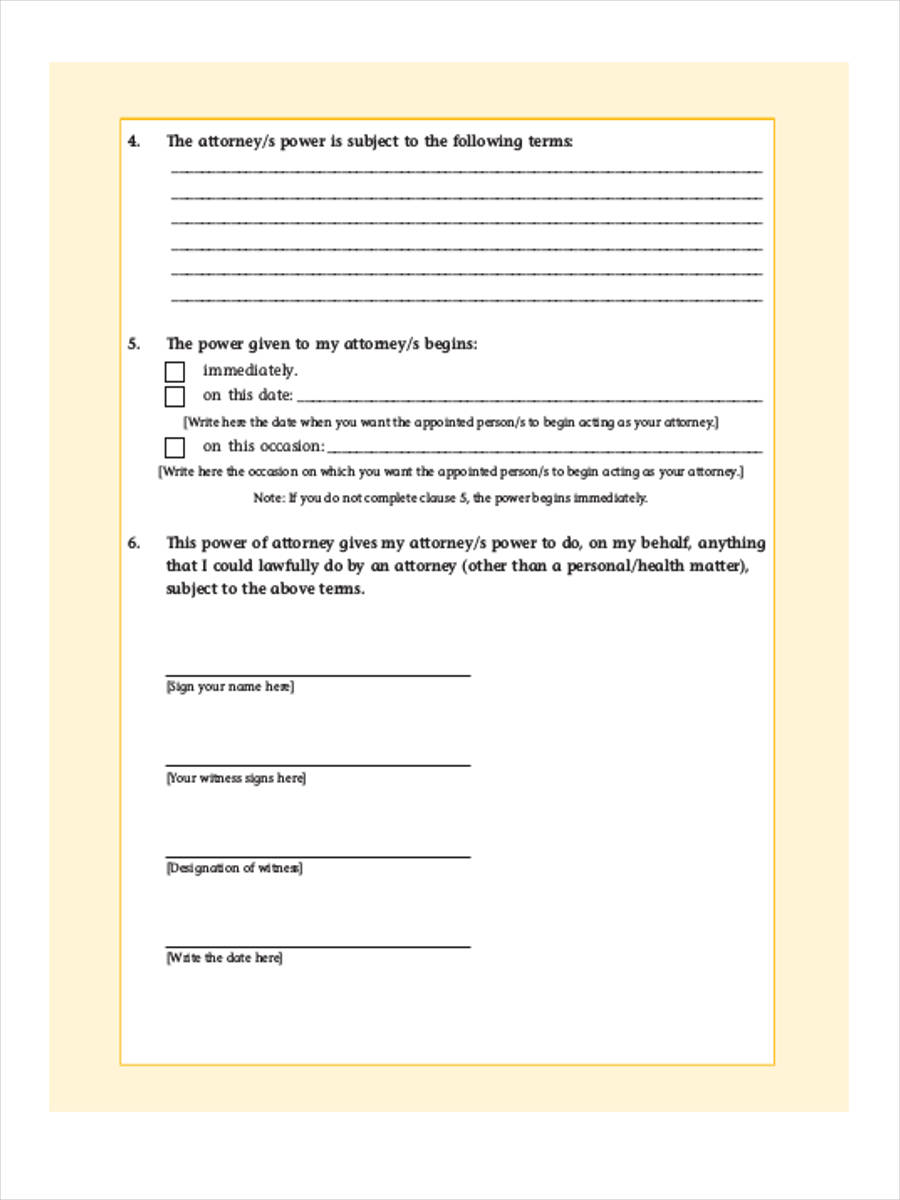

Responsibilities of the Agent or Attorney-In-Fact Once the document has been signed and notarized, the agent has the authority to act on behalf of the principal, as specified in the document. In some cases, witnesses may also be required to sign the document to verify the principal's identity and to attest to their capacity to create a power of attorney. The notary public will require the principal to present identification and sign the document in their presence. The notary public is a person authorized by the state to witness the signing of legal documents and to verify the identity of the parties involved. Once an agent has been chosen, the power of attorney document must be signed and notarized to make it legally binding. When choosing an agent, the principal should consider their age, health, and location, as well as their experience and qualifications. The agent should also be willing to act as the principal's agent and must agree to accept the responsibilities associated with the role.

The agent should be someone who the principal trusts and who has the necessary skills and knowledge to carry out the duties assigned to them. Choose an Agent or Attorney-In-FactĬhoosing an agent or attorney-in-fact is an important decision that should not be taken lightly. In addition, the document must be signed by the principal and, in some cases, by witnesses. The power of attorney document must be specific as to the powers granted to the agent and the circumstances under which those powers can be exercised. The principal must have the capacity to understand the nature and consequences of the power of attorney, must not be under duress or undue influence, and must have the intention to create a power of attorney. These include: Create a Valid Power of Attorney Document To create a valid power of attorney, there are several things that must be considered. It can be either general or limited in scope. It is important to know that this power of attorney only goes into effect when a particular event or condition occurs, such as the principal becoming incapacitated. This kind of power of attorney remains in effect even if the principal is incapacitated or unable to make decisions for themselves. It is often used for a specific transaction, such as buying or selling property. This type of power of attorney grants limited authority to the agent to act on behalf of the principal in specific situations or for a specific period of time. Limited Power of AttorneyĪnother type is the limited power of attorney. It is typically used for short-term situations and is terminated when the principal becomes incapacitated or dies. This type of power of attorney grants broad authority to the agent to act for the principal in various legal and financial matters. Several types of power of attorney can be used depending on the circumstances. The agent must have the necessary skills and knowledge to carry out the duties assigned to them and must act in the best interests of the principal at all times. Once the power of attorney document has been created, the principal must choose an agent who they trust to manage their affairs. It is important to understand how power of attorney works because it grants significant powers to the agent and can have a significant impact on the principal's finances, property, and personal affairs.

This legal arrangement is useful in situations where the principal cannot decide for themselves due to illness, injury, or absence. A power of attorney is a legal document that authorizes an individual to act as a representative of another person in specific circumstances.Īn individual who grants the power of attorney is called the principal, whereas the individual acting on their behalf is known as the agent or attorney-in-fact.


 0 kommentar(er)
0 kommentar(er)
